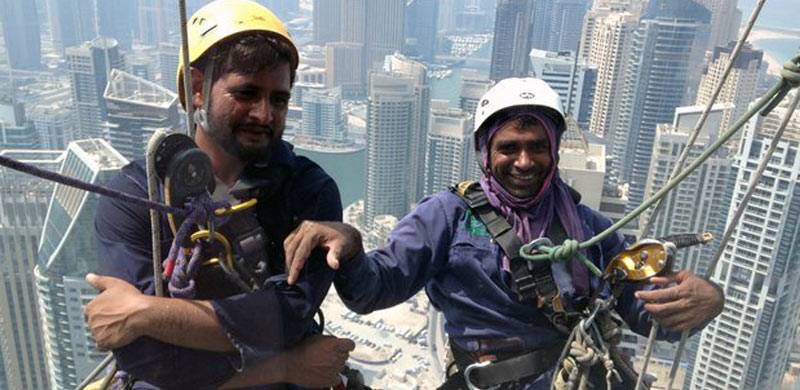
Delayed salaries and financial hardships amid the coronavirus pandemic have resulted in mental health issues for overseas Pakistani nationals in United Arab Emirates (UAE). This disturbed mental health often leads to other long term diseases.
Pakistani labourers particularly suffer from other health issues such as diabetes (which may not even be diagnosed) or complications associated with a bad diet in labour camps.
The rooms where they live are usually filled to capacity. Depression is still one of the main causes of concern among workers living in these types of communities.
Labourers need psychological help, especially if they are depressed. They are away from home and need support. They instead turn to chain-smoking, consuming alcohol or could even commit suicide. The mental health of workers is most affected by salaries not being paid on time.
Employers who fail to pay wages within ten days after their due date face harsh punishments, according to a decree introduced by the Ministry of Human Resources and Emiratisation. Yet despite strict rules, some companies manage to violate the law.
If their salaries were not paid on time, it is very depressing. Most of the workers take [financial] care of their families – their families keep on calling and the labourers become depressed as they are unable to provide help for them said Jabir Ali who worked at a construction company based in Dubai.
Akhter Ali, 24, hailing from Kohat in Khyber Pakhtunkhwa, died at Al Aweer Dubai, in a farmhouse after falling ill for three months. His health insurance card provided by owner didn't facilitate his treatment and he used to send all of his money back home. After he got seriously ill, the owner took him to hospital but he expired in three days. The health report stated that he suffered from diarrhoea: his brother told.
Mohammed Ehais, 35 years old, said he misses his family and worries he does not earn enough to support their needs.
“I am very tired and I feel sick. I work for eight hours a day and earn only Dh900 a month. I think a lot about my wife and children back home, fearing not to meet their expenses,” he said.
Mohammed Asif, a 25-year-old maintenance industry worker who provides for his wife, two children and mother, said he struggles to stick to healthy eating advice.
“I am not eating healthy. I am far away from home to be able to support my family and buying healthy food costs more,” he said.
